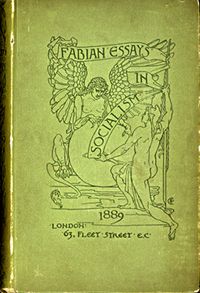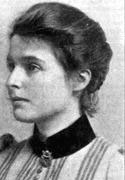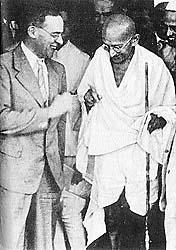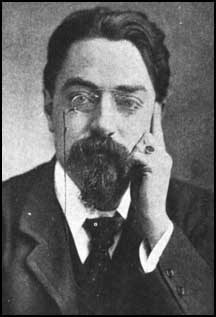Sidney and Beatrice Webb and Homeopathy
July 21, 2008
 Sidney and Beatrice
Webb were amongst the
founders of the Fabian
Society in 1884, along
with George Bernard
Shaw,
Annie Wood
Besant,
Graham Wallas, Edward
Reynolds Pease, Hubert
Bland and his wife Edith
Nesbit, and Sidney
Olivier. They also founded
The New Statesman.
Sidney and Beatrice
Webb were amongst the
founders of the Fabian
Society in 1884, along
with George Bernard
Shaw,
Annie Wood
Besant,
Graham Wallas, Edward
Reynolds Pease, Hubert
Bland and his wife Edith
Nesbit, and Sidney
Olivier. They also founded
The New Statesman.
George Bernard Shaw and Sidney and Beatrice Webb turned the Fabian Society into the pre-eminent political-intellectual society of England in the Edwardian era and beyond.
Sidney Webb was also one of the founders of the London School of Economics.
Beatrice Webb and her husband Sidney were close friends of homeopathic supporter George Bernard Shaw and a life long friend of Herbert Spencer, whose publisher was John Chapman. Beatrice Webb also knew Thomas Henry Huxley.
Sidney and Beatrice Webb were part of a social intelligentsia which included many homeopaths.
 Martha Beatrice Potter
Webb 1858 - 1943 was an
English
socialist, economist and
reformer, usually referred to in the same breath as her husband, Sidney
Webb. Although her husband
became Baron Passfield
in 1929, she refused to be known as Lady Passfield.
Martha Beatrice Potter
Webb 1858 - 1943 was an
English
socialist, economist and
reformer, usually referred to in the same breath as her husband, Sidney
Webb. Although her husband
became Baron Passfield
in 1929, she refused to be known as Lady Passfield.
Beatrice Webb’s uncle Thomas Babington Macaulay was a patient of homeopath James Manby Gully. Her cousin Charles Booth was married to Thomas Babington Macaulay’s niece Mary.
Her nephew Richard Stafford
Cripps
had homeopathic treatment whilst in
India,
and was an associate of homeopathic supporter
 Mohandas Karamchand
Gandhi.
Mohandas Karamchand
Gandhi.
Beatrice Webb was an advocate of slumming:
This was the great age of “slumming” by members of the middle and upper classes including James Greenwood, Jack London, Beatrice Webb, and last but not least George Orwell.
Slumming was an idea that spread rapidly amongst social reformers at this time, many of them were homeopaths, and it is most likely that Beatrice Webb knew many of the radicals who were active in this area, including James Hinton and Arnold Toynbee.
James Hinton was a friend of homeopath Thomas Roupell Everest and his daughter Mary Everest Boole, the wife of George Boole. His son Charles Howard Hinton married Mary Ellen Boole, Mary Everest Boole’s daughter.
James Hinton was a great influence on Arnold Toynbee who was a member (Robert A. Woods, Albert J. Kennedy, Albert Joseph Kennedy, The Settlement Horizon, (Transaction Publishers, 1922). Page 24) of the Tower Hamlets Radical Club with William Morris, Henry Solly, Frederick Nicholas Charrington, Henrietta and Samuel Barnett, Annie Wood Besant and many others, chased from tavern to tavern by the police until the club officially opened in 1874.
Victorian reformers drew inspiration from many sources, but it was James Hinton who most deeply and explicitly articulated how the problems of slum life and the attractions of slumming were enmeshed in a complex matrix of sexual and social politics.
As slumming gathered momentum in the early 1880s, some claimed that society was beginning to reap the harvest of enlightened altruism James Hinton had sown in the years before his death in 1875.
James Hinton’s radical ideas influenced Edward Carpenter, one of the founders of the Fabian Society.
Havelock Ellis, another founder of the Fabian Society joined The Fellowship of the New Life in 1883, meeting other social reformers Edward Carpenter and George Bernard Shaw.
Frank Podmore, another founder of the Fabian Society was an active spiritualist and homeopathic advocate and associate of homeopath James John Garth Wilkinson.
Edith Nesbit was also a founder member of the Fabian Society was also a member of The Golden Dawn which included several homeopaths.
 Sidney James
Webb 1st Baron Passfield
PC
1859 – 1947 was a British socialist, economist and reformer, normally
referred to in the same breath as his wife, Beatrice
Webb.
Sidney James
Webb 1st Baron Passfield
PC
1859 – 1947 was a British socialist, economist and reformer, normally
referred to in the same breath as his wife, Beatrice
Webb.
Sidney and his wife Beatrice were members of the Labour Party and took an active role in politics. Sidney Webbb became MP for Seaham at the 1922 general election.
The couple’s influence can be seen in their hosting of the Coefficients, a dining club which attracted some of the leading statesmen and thinkers of the day.
Webb was born in London to a professional family. He studied law at the Birkbeck Literary and Scientific Institution for a degree of the University of London in his spare time, while holding down an office job.
In 1895 he helped to establish the London School of Economics, using a bequest left to the Fabian Society. He was appointed its Professor of Public Administration in 1912, a post which he held for fifteen years.
In 1892, Webb married Beatrice Potter, who shared his interests and beliefs. The money she brought with her enabled him to give up his clerical job and concentrate on his other activities.
Both were members of the Labour Party and took an active role in politics. Sidney became MP for Seaham at the 1922 general election.
In 1929, he was created Baron Passfield. He served as both Secretary of State for the Colonies and Secretary of State for Dominion Affairs in James Ramsay MacDonald’s second Labour Government in 1929.
As Colonial Secretary he issued the Passfield white paper revising the government’s policy in Palestine, previously set by the Churchill White Paper of 1922. In 1930 failing health caused him to step down as Dominions Secretary, but he stayed on as Colonial Secretary till the fall of the Labour government in August 1931.